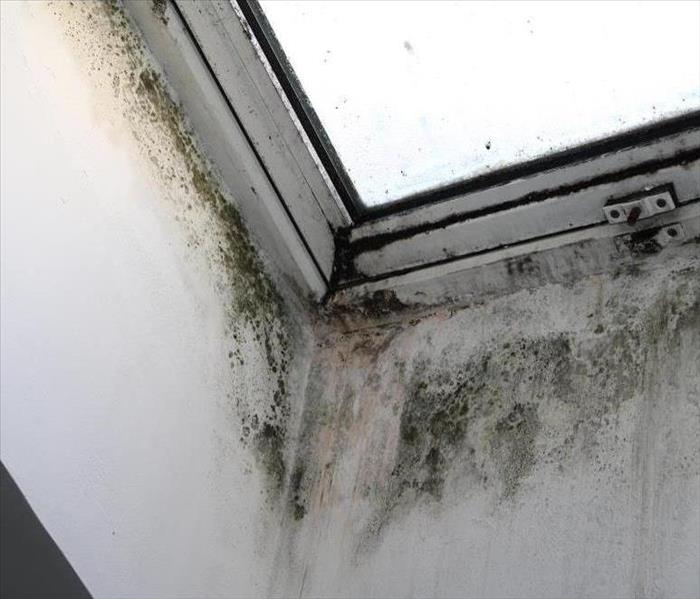Does Mold Go Away On Its Own?
5/14/2018 (Permalink)
 If you are concerned about black mold or other mold growth, schedule a test with a service that provides mold cleanup in Johnson City, TN.
If you are concerned about black mold or other mold growth, schedule a test with a service that provides mold cleanup in Johnson City, TN.
Mold requires a combination of organic material and moisture in order to grow. Once mold develops, it remains present even after the source of excess moisture is addressed and humidity levels drop. Whether you are dealing with black mold or another type of mold, addressing a moisture problem is only the first step. You should also arrange for mold cleanup to ensure that the problem does not return.
Here are several facts that you should keep in mind regarding mold and moisture.
• Mold remains active as long as relative humidity levels are 60 percent or higher. If you want to stop the growth of mold and render it inactive, you should maintain humidity levels at 50 percent or lower. Mold will not continue to grow without moisture, but it also does not disappear.
• If mold is still present when moisture levels rise, colonies will start growing again. Mold requires moisture to sustain the growth phase. If you already have any kind of mold in your residence, including black mold, moisture will stimulate this growth.
• Mold spores are resistant to desiccation, or drying out. Dry spores may spread even more easily than mold in other stages of the growth cycle. Even inactive mold growth will occasionally emit spores. These spores generally do not become airborne unless disturbed.
• Mold toxins are not alive, and they are stable. Mycotoxins can be present anywhere that mold is present. These toxins are not alive and are not affected by the presence or absence of moisture sources. Once they develop, these toxins remain present until removed.
If you are concerned about black mold or other mold growth, schedule a test with a service that provides mold cleanup in Johnson City, TN. In addition to resolving the moisture problem that is causing mold to develop, you should also eliminate the presence of mold so that it does not intensify or spread. For more information, visit http://www.SERVPROwashingtoncountytn.com/.

 24/7 Emergency Service
24/7 Emergency Service